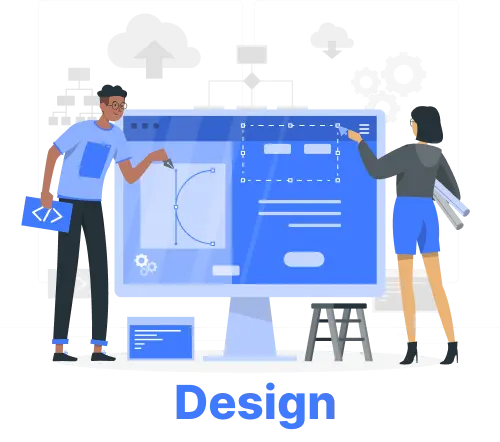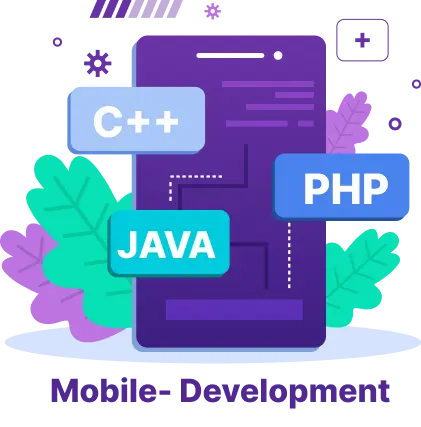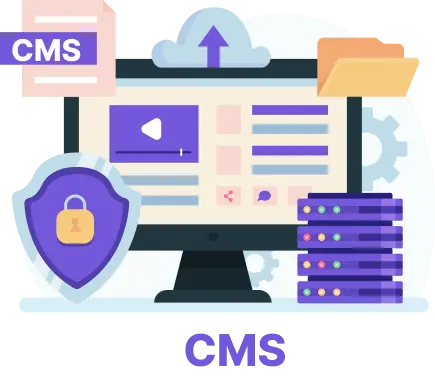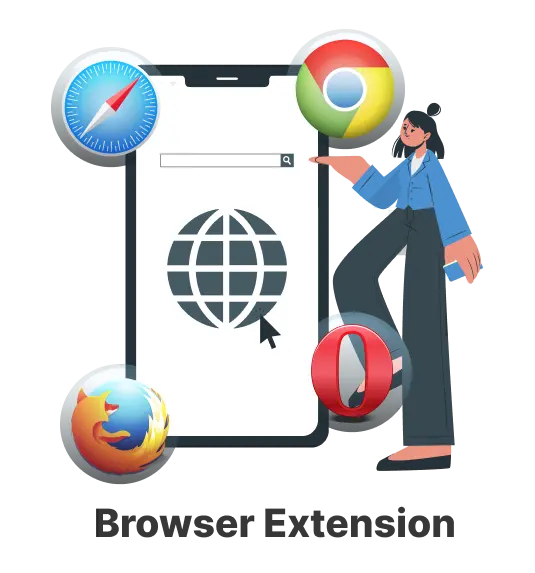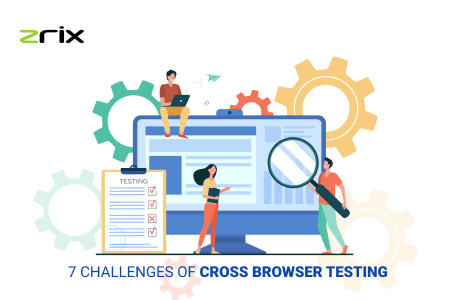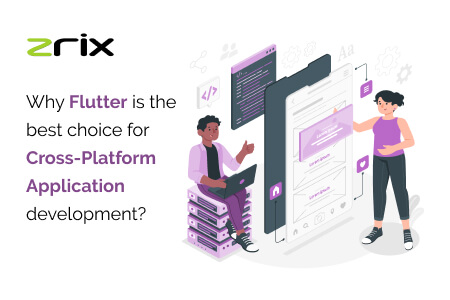The Future of Cross-Platform App Development
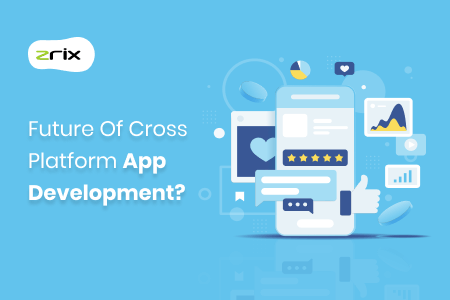
Nowadays, Cross-platform Mobile App Development is the most popular app development process because of its advantages, promises, and features. Enterprises and business organizations consider cross-platform app frameworks the best way to make apps as it saves their resources everywhere.
Not only the cross-platform app development framework benefits companies, but it also allows the developers to create any kind of trending mobile application, compatible with both iOS, Android, Windows, etc. Cross-platform programming is highly potential, even help impotent developers to increase their focus on native-like coding. Thus, developers and app designers enjoy using cross-platform frameworks.
To better understand this, today we will highlight everything about cross-platform app development, its features, its best tools, its use cases, its benefits, and more.
Keep pace with us!
Quick Navigation
Cross-platform app development frameworks empower application developers and designers to devise applications intended to work on more than one OS, i.e., Android and iOS.
The biggest benefit of this kind of mobile application development is to the designers and developers, who want to design and code once. This adaptability with the code gives it an edge over Native and Hybrid development. Hence, we can say that it is the future of app development.
Advantages of cross-stage application development- Cloud Integration, Less Technical Issues, Simple Hosting, Consistency in UI Components, Cost-Effectiveness, and Reusability of Code.
"70% of digital usage comes from mobile applications!"
That means app development has a bright future, and competition between top mobile app development service providers will rise drastically at high rates.
To develop applications, we need app development frameworks. With cross-platform at our side, we can create apps for iOS and Android at the same time. Cross-platform is advantageous over Native app development and Hybrid app development!
We can say there are many cross-platform frameworks out there, each one with different pros and cons. However, the business and the information show us a pattern to pick the best way to make cross-platform apps and improve the app development process.
What Is Cross-Platform App Development?
Cross-platform development is the way toward making and conveying versatile mobile applications that run smoothly on different devices and mobile platforms.
Apps made using cross-platform development utilize a unique singular codebase that reduces the cost of mobile app development. Flutter by Google and React Native by Facebook are the two most notable versatile mobile application development frameworks accessible in the present market.
Utilizing a cross-platform methodology permits you to assemble an application over different stages, including the web market. Building up such applications will empower organizations to boost their crowd by focusing on both iOS and Android clients.
Also Read: Does Cross-platform Really Kill Native App Development
Pros of Cross-Platform Mobile App Development: Wider Audience, Reusability of Codes, Single Codebase, Cost Reduction, Faster Development, Platform Consistency, Extensive Market Reach, Native-like App Feel, Less Workload, Easy Maintenance & Deployment, Faster Time-to-Market, and Uniform Design.
Cons of Cross-Platform Mobile App Development: Performance Glitches, Limited User Experience, Harder Code Design, Less Updates, Limited Customization, etc.
What is the Need for Cross-Platform Development in the Mobile App Industry?
Developers, designers, and app development experts invest their time, brain, and energy in creating a single codebase. As a result, app development costs (for iOS and Android) decreases by 30%.
The investment funds that arise when one product must be kept up, occasionally, offer much more noteworthy investment funds. Updates sync naturally to all platforms at once.
Code reusability, design retention, and improved cloud-based arrangements, actually decrease app development expenses. These little advantages improve the productivity of any business app development incredibly.
A predictable look and feel with consistent elements across all gadgets and devices help in building a better go-to strategy for app development, just to put out a clearer brand picture in front of the online audience, customers, and clients.
An ideal app development opportunity is when the codebase permits indispensable readiness in the present quick business model rather than keeping up with the traditional native app development process. Yes, the innovation happening in the app development industry is mostly credited to cross-platform app development.
It especially lightens the issue of designers compromising with testing, helping them to save time by using HTML5. As a result, in the last few years, cross-platform app development has certainly gained much more popularity over any other app development methodology.
Also Read: 10 Ways to Build Cross-platform Mobile Apps
The most obvious benefit of cross-platform app development is in its agile and fast development process, improved security, design, and performance in less amount.
That’s why the need for cross-platform app development will be more in the future!
Which are the Top Cross-Platform App Development Tools?
The top four popular cross-platform app development frameworks for iOS and Android are as follows:
Xamarian
Xamarian was established in 2011 and got popular when Microsoft purchased it in 2016. Today, it has over lacs of users. It requires two important programming languages, .NET and C# to make mobile applications. With C# codebase, code-sharing is useful on different platforms; thus, making Xamarian one of the best ways to make cross-platform applications.
React Native
In 2015, Facebook launched React Native app development framework in the app market. It empowers the developers to make native-like apps for iOS and Android with their app development knowledge. It uses javascript and non-standard editors to wrap native features with the best UI and UX in the cross-platform application.
Interested in this framework, get in touch with the top react native app development company in USA!
Flutter
Like Xamarian and React Native, Flutter is another open-source app development framework. It's a product from Google to create native structures for Android; however, it is useful in creating apps for iOS too and is one of the top cross-platform app development frameworks.
It's versatile programming, ability to use Dart language creates iOS and Android apps by using rich widgets to give remarkable native experiences on Android and iOS smartphones.
Adobe PhoneGap
Also known as Apache Cordova, Adobe PhoneGap uses open-web technologies to create mobile apps by using JavaScript, Java, HTML5, and CSS in development. Wikipedia is the best example of the cross-platform app PhoneGap. It makes simple applications! Even the beginner can use it to develop applications.
These cross-platform app development tools ease the app development process and reduce the cost of development to a maximum extent.
Final Thoughts!
Yes, the Cross-platform app solutions are cost-effective, development-friendly, provides the best UI and UX; however, they haven't yet gained enough attention due to native app development platforms. Furthermore, entrepreneurs and business persons prefer making Android applications, as 75% of mobile users have Android smartphones.
Now, the question is which cross-platform app development framework you need to choose?
In this era of mobile app development, the developers need to create the best logic without creating much on the development. Code was everything, but now with the availability of frameworks, compatibility of features in an app on the iOS and Android devices is everything.
As a result, in the coming years, app development with Cross-platform frameworks, other advanced technologies, and trends will grow more.
If you have an interest in making iOS applications, then hire iPhone app developers in the USA!
Tell us in the comment section below - how did you like the blog post?

